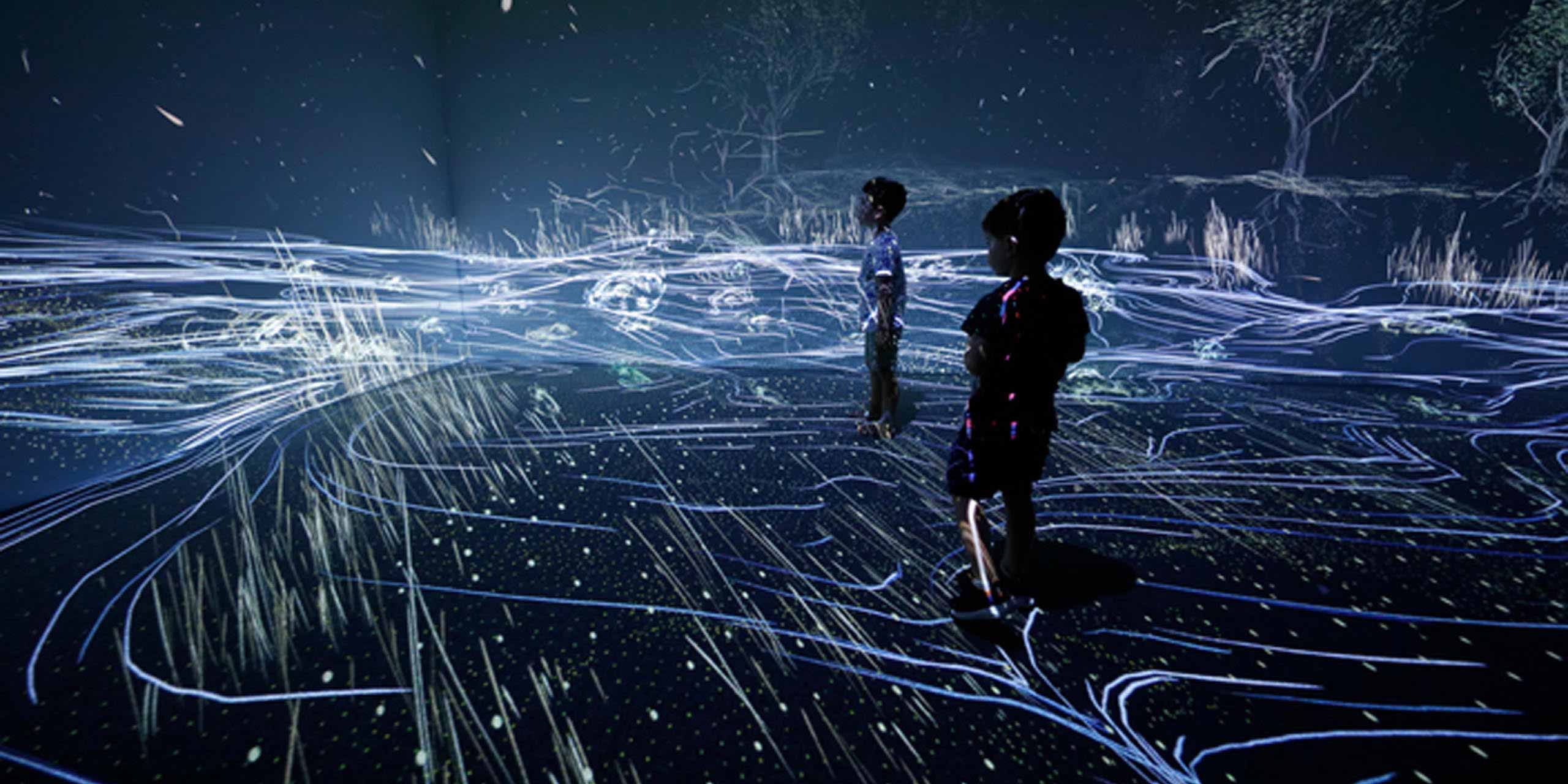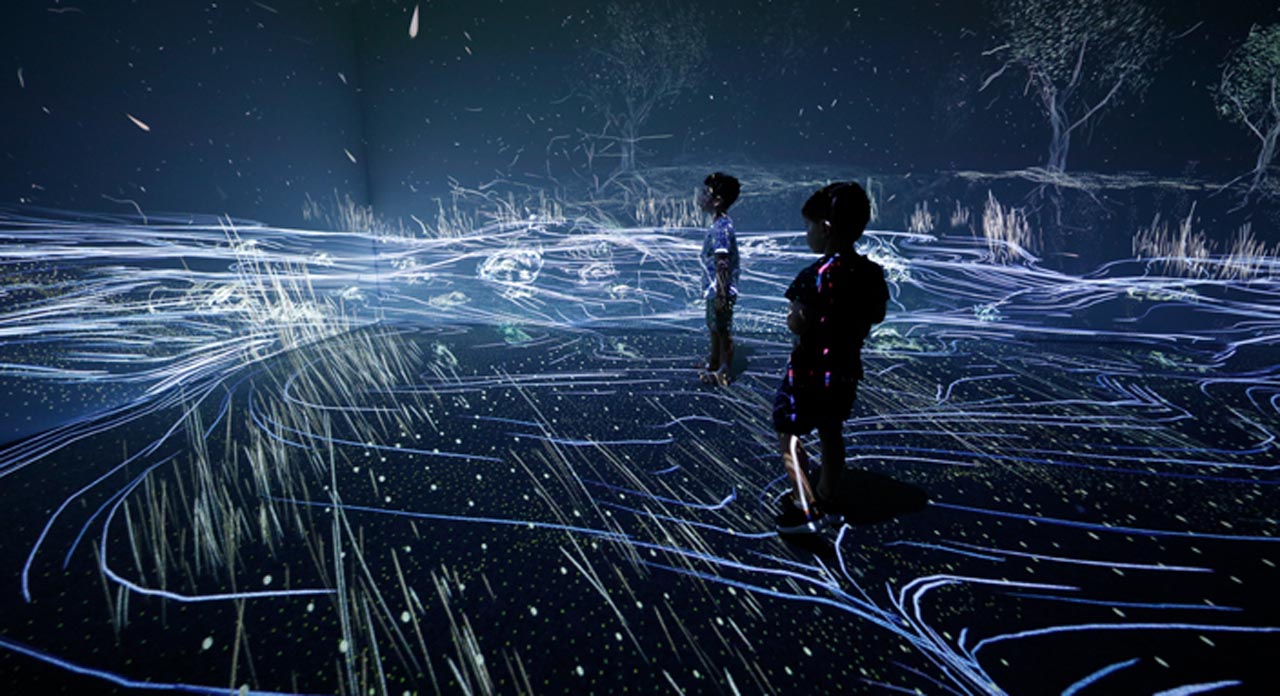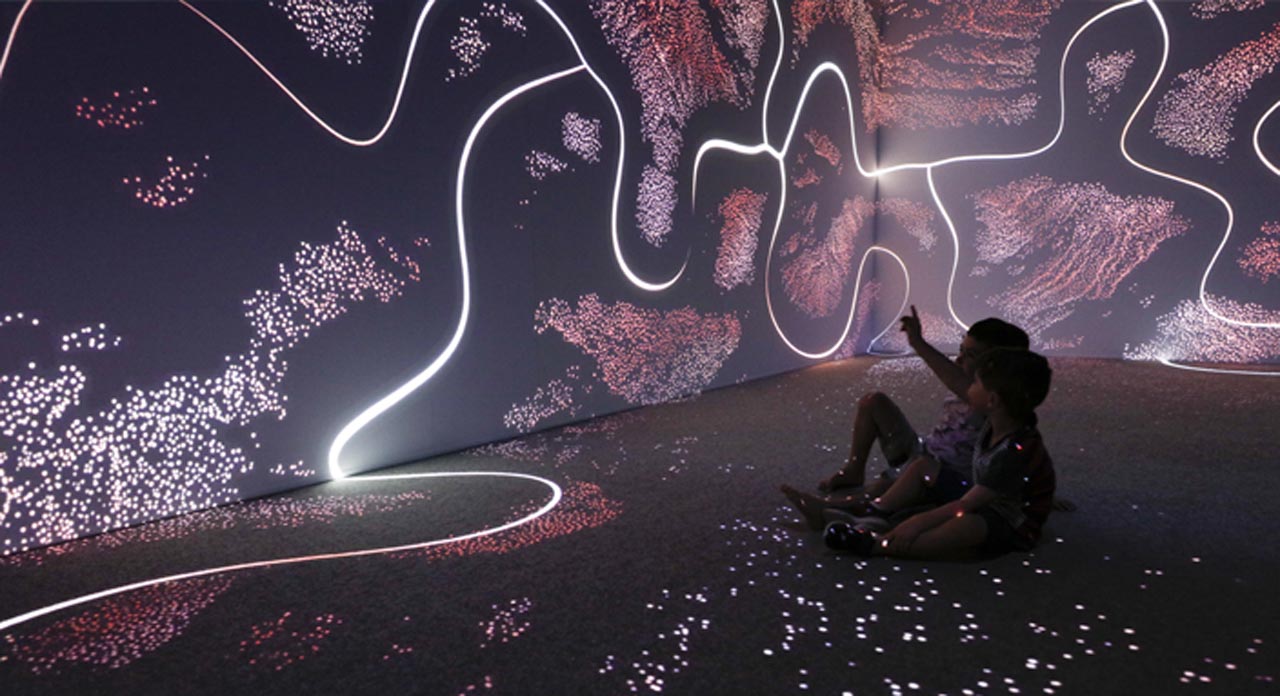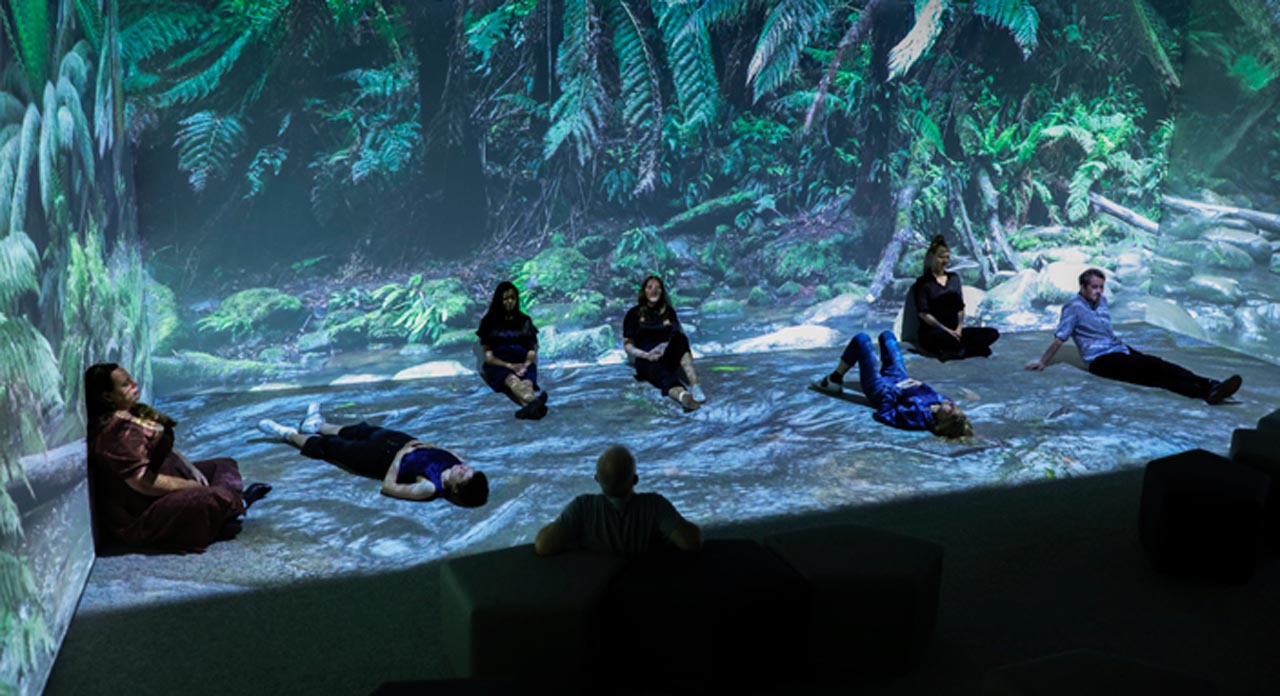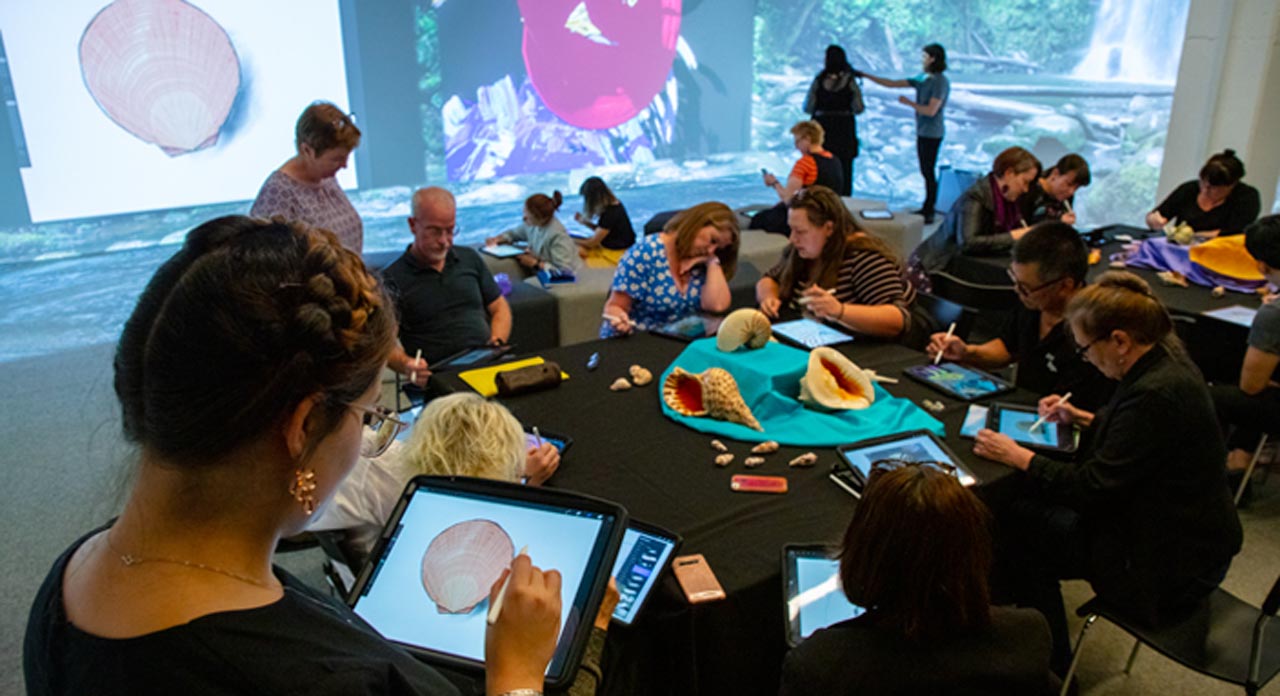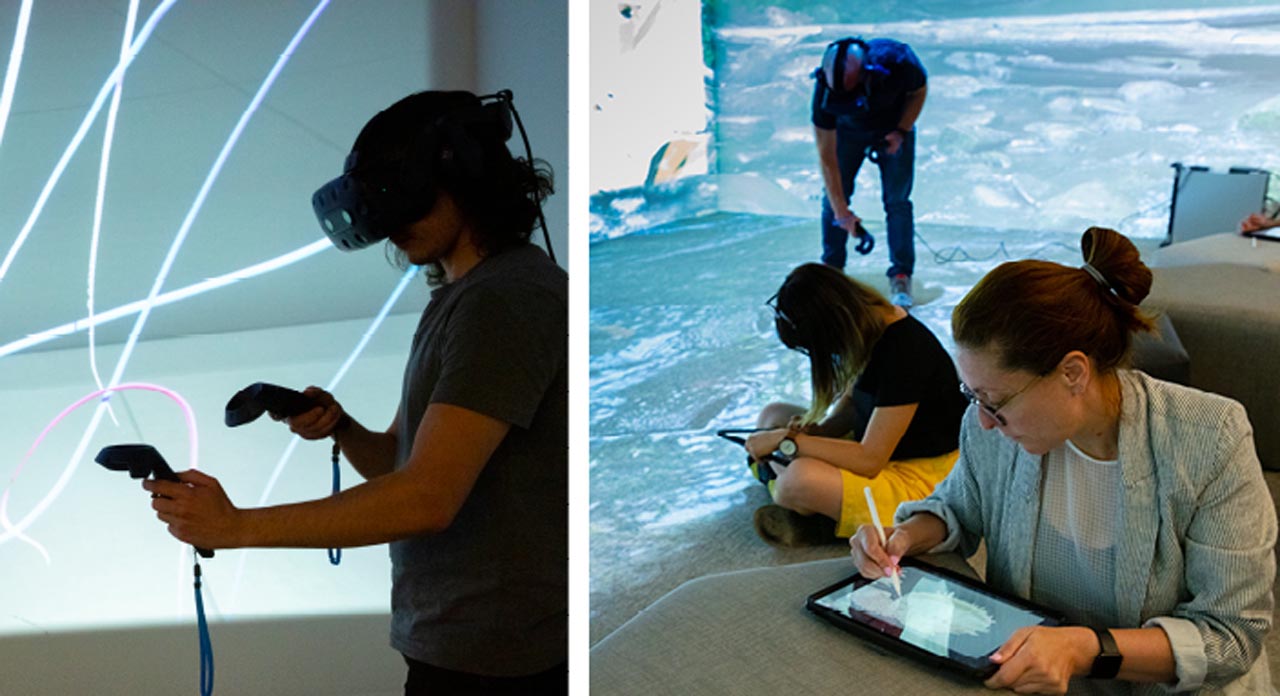Consideration of the audience journey was at the centre of our experience design. High-quality multimedia technology, modular furniture, ample storage and soundproofing allow the Learning Lab to adapt to our audience\’s needs. This project celebrates the merging of digital, architectural and philosophical learning design. Our design process, led by museum educators, involved collaborating with digital designers, architectural designers and First Peoples’ collaborators for content design. Our learning philosophy outlines that interconnectedness is transparent via Deep Listening and creativity grows exponentially when collaborative. This is true for both our audience experience and our holistic, collaborative process from design through to delivery.
Learning Lab is a holistic redesign of Melbourne Museum’s learning spaces and approach to lifelong learning.
Our desire to create a ground-breaking multi-sensory learning environment drove the design process. The space uses technology powerfully and flexibly to showcase immersive digital experiences with awe-inspiring wall and floor projections that take audiences on a journey and can transform to host innovative co-creative workshops that inspire audiences to act for a thriving future.
The Learning Lab connects museum collections, stories and First Peoples’ concepts of Deep Listening through multimedia, architectural and learning design setting a new benchmark in museum learning in Victoria.

